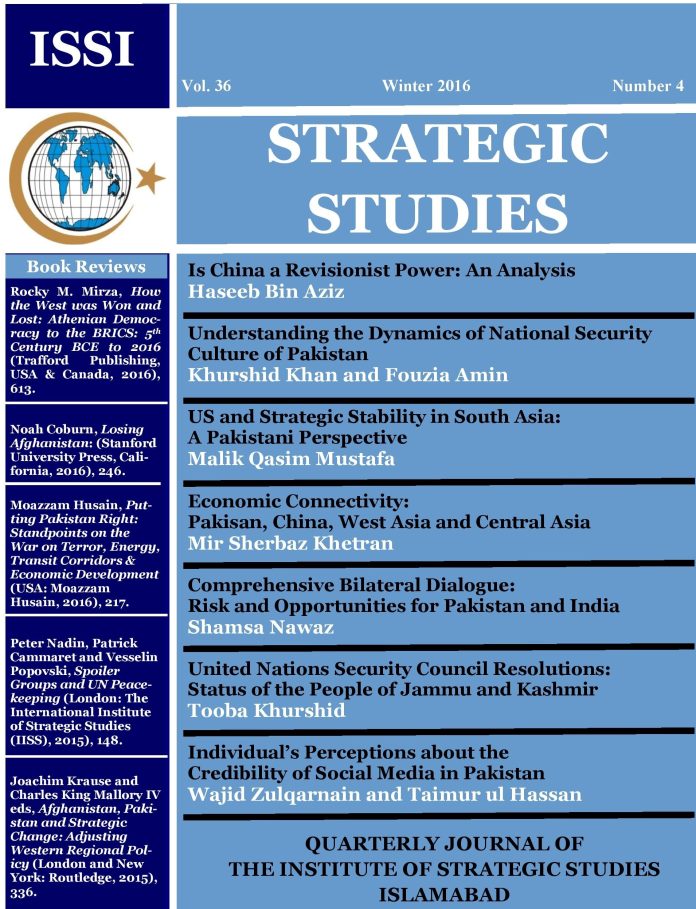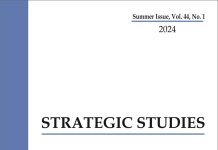Abstract:
Pakistan and India agreed on a Comprehensive Bilateral Dialogue (CBD) in November 2015, as a follow-up of the Composite Bilateral Dialogue which was initiated in 2004. It initially capped a series of positive developments. An unprecedented responsiveness and long-awaited pragmatism was shown to break the impasse after the terrorists’ attack on Pathankot Air Base in January 2016. Pakistan went out actively after the perpetrators and India also avoided direct finger pointing. However, a meeting of the Foreign Secretaries of the two countries on the sidelines of the secretary level Heart of Asia Conference held in Delhi on April 26, 2016, was not an auspicious follow up of the erstwhile reconciliation process. The sequence of events are once again keeping the relationship swinging towards the old pattern of diplomatic delays, raising issues of concern about the progress of the Confidence-Building Measures (CBMs). The risks involved in continuing hostilities are treacherous. On the contrary, the given opportunities can help bring them closer to CBMs needed for geo-strategically and geo-economically rich South Asia. This study explores the role and/or interests of the international and regional states as well. Their subsequent role as the main stakeholders and enablers has, nonetheless, reinforced Pakistan’s stance on the significance of mediation/arbitration on the outstanding issues between the two states since the partition of the sub-continent in 1947.













